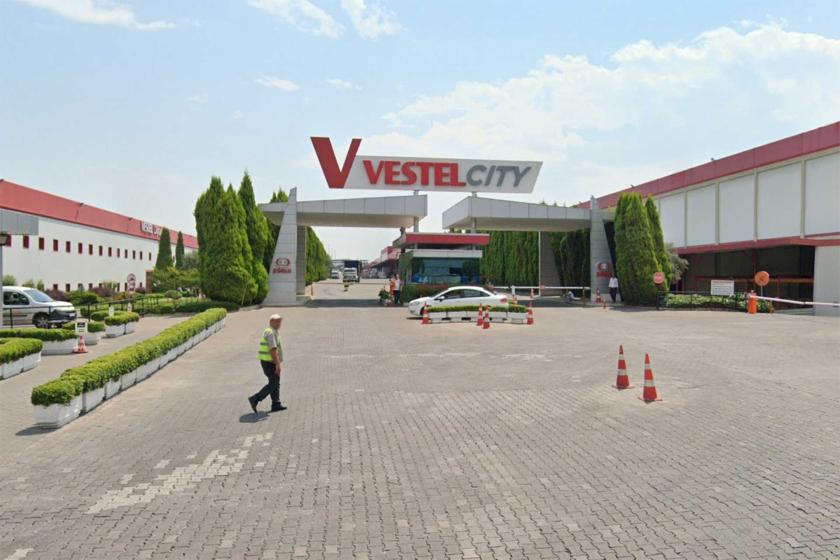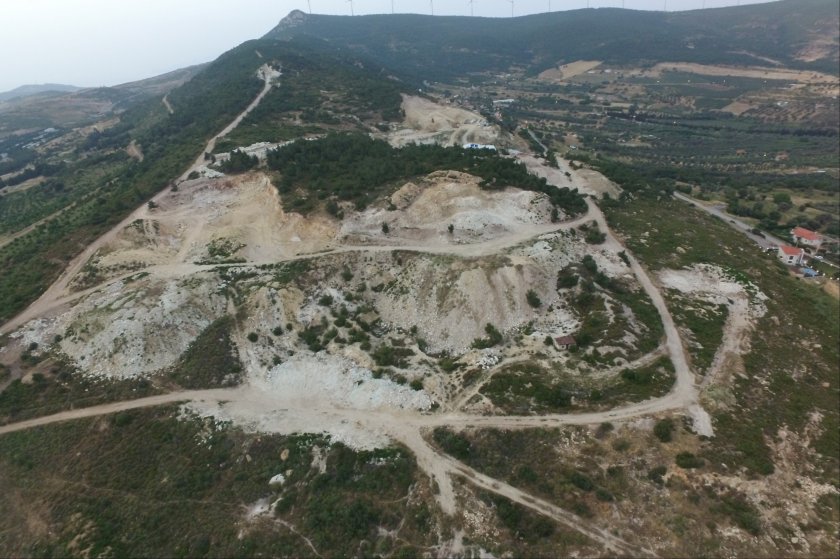Minimum wage comedy
By judging the word "minimum" and the word "wage", the wage for labour is transformed into a kind of social aid, creating the perception that the taker should be satisfied with a thousand tokens of gratitude, whatever the giver gives.

DİSK, Türk-İş ve Hak-İş Ege Bölge Temsilcilikleri ortak açıklama yaptı | Fotoğraf: Evrensel
(In Turkey) About half of the workers work for the minimum wage, and both the employer and the political power can play on this issue as they wish. Contrary to the idea that the high number of people on the minimum wage can bring up a move against the capital, the reason for this is the high level of unemployment on the one hand, and on the other hand, the unorganised state of the workers and the efforts of organisations to keep exploitation sustainable rather than protecting workers' rights. This creates an interesting balance between the workers, the bosses and the state. Therefore, the raise in the minimum wage remains, as the name suggests, the working-for-peanuts raise.
That's where the comedy phase begins. Don't the labourers produce with their labour? If the answer to this question is "yes", the money received should be entitlement, or "the return of labour". By judging the word "minimum" and the word "wage", the wage for labour is transformed into a kind of social aid, creating the perception that the taker should be satisfied with a thousand tokens of gratitude, whatever the giver gives. In other words, the minimum wage, as in material capital, is tried to be reduced to a similar situation in the equivalent of sufficient "amortisation" to renew the capital in the future. This means that in order for the labourer to continue to work, only to be nourished at a biologically minimum level, that is if he or she can be nourished, and the amount determined without taking into account all other needs is sufficient. This logic needs to change, and for this, labourers need to be exceptionally conscious about it. As it is known, labor is perceived as capital and the concept of human capital is used as an anti-material capital. Concepts are very important in creating perception.
Minimum wage is a pro-capital concept in the capitalist system. If the labourer produces and the productivity is reasonable, why shouldn’t they get what they deserve from production, just like capital and the entrepreneur, and instead be employed for the survival pay which is called the minimum wage and created in favour of capital through some kind of meaningless bargaining? In the first half of the 1800s and 1900s, people who were employed to death in industrialized countries, especially in England, created an economy, but some people seized the values they created. Although productivity was quite high in these countries, workers did not receive the income they deserved.
The minimum wage is the policy of the state to provide high profit margins to capital under the appearance that it does not let workers to be crushed by getting in between capital and workers. The image of not letting the wages to be crushed relates to the duty of the state apparatus to legitimise the system. In fact, the logic of the minimum wage is that the state protects workers who are in a much lower wage situation when it’s left to the initiative of the market. Thus, the minimum wage is a wage system that is legitimised in the eyes of the workers. In this case, the responsibility for intensive exploitation of labour passes from capital to the state, exacerbating the pressure on the workers.
The pressure exerted on wages by the high unemployment figures is an exploitative pro-capital opinion. In the logic of the welfare state, the backbone of the state's policy of not letting workers crushed by capital is the treatment and implementation of entitlement pays and unemployment insurance practices as a different income category. This way, the exploitative pressure of unemployment on labour in the workplace can be removed. However, the state apparatus in cooperation with exploitative capital clearly responds to the exploitative policy of capital by leaning not towards the logic of the welfare state but towards the exploitative policies exacerbated by unemployment.
This reflects the other side of the coin, namely the policy of enabling capital to profit excessively and opening up the space for hoarding personal wealth. On this front, the function of the state to contribute to the accumulation of private capital comes to the fore. However, the decision whether the part of exploitation will be transferred from the workers to capital will actually go to the accumulation of capital is left to the capital owner under the circumstances of financial data. This situation contains two important socioeconomic errors. The first is taking away the say over the fate of the part produced by labour from labour and giving it to capital. Thus, theft from labour in capitalist societies, which are described as democratic, is not only on economic value, but also on the right to decide. Secondly, the surplus value snatched away from labour is theoretically the property of society and must be used for the benefit of society. However, capitalists who seize the surplus value are now free to use it as they wish. There is no mention of democracy in such a set-up.
If the values stolen from the workers go to the accumulation of private capital, there is intense exploitation on labour in the added values obtained as a result of investment and exports and the same process continues to grow. The solution of this issue is not expected from capital or the state. The solution to this problem is within the workers. Workers need two important conditions to achieve their rights through struggles. The first is organisation, and the second is the formation of strong and true class consciousness.
In order to continue in another article, it should be noted that both in the form of a union and in the form of a political party, organising can be positive in favour of labor and democracy or, it can result in deterioration of workers’ resistance and dulling of progressive forces, depending on the created structure and functioning. Therefore, organising is not enough, it is necessary to dominate the organisation with strong consciousness.






Evrensel'i Takip Et